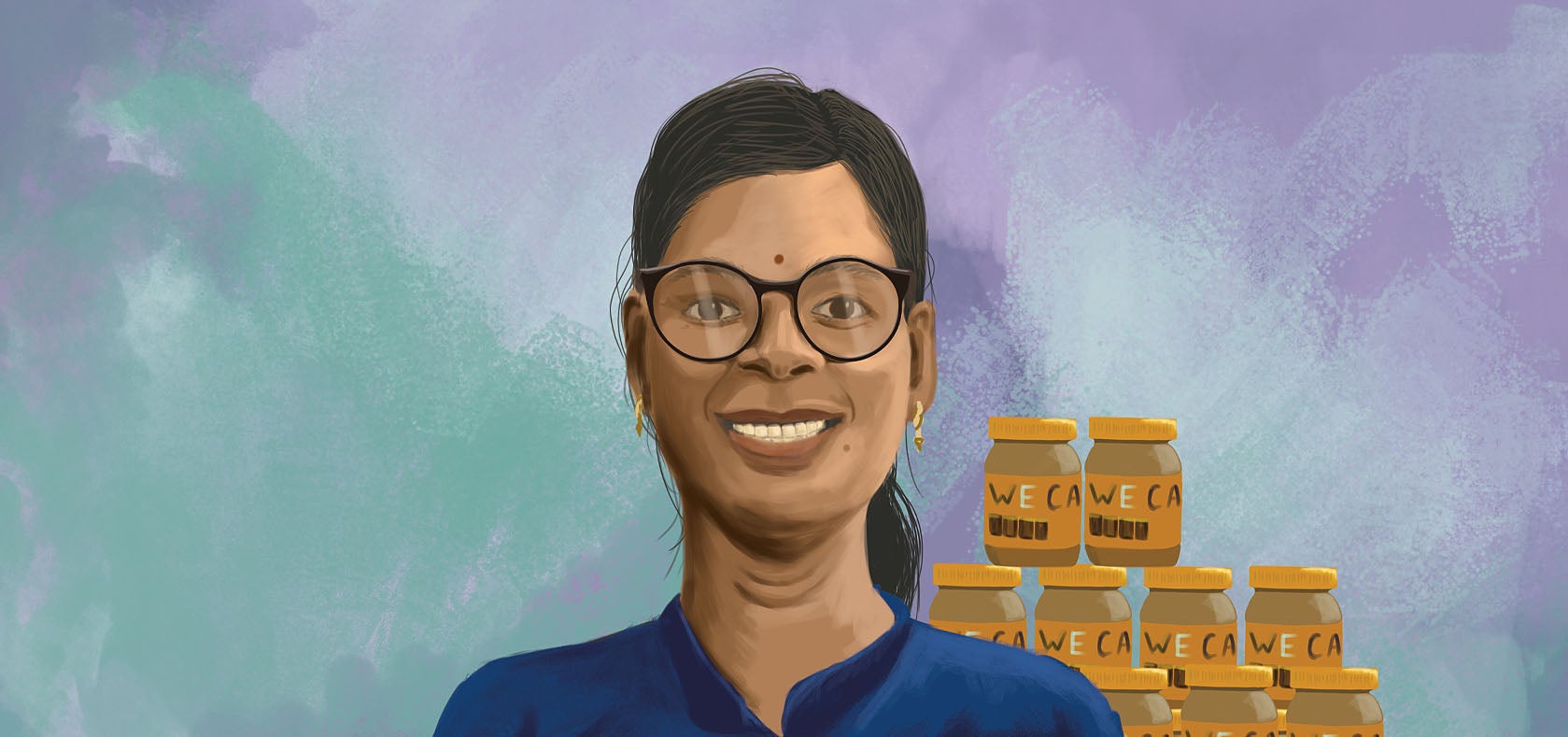Empowering women with disabilities through entrepreneurship in Sri Lanka
Date:

In Thamarai Kulam, Adampan, a small town in Sri Lanka’s Mannar District, Palaniyandi Rasarani, 46, spearheads peanut butter production through “We Can” – a hub for people with disabilities.
Rasarani comes from a family of five girls. As many others directly affected by the three-decade conflict in the country, she is living with a disability: She has partial vision in one eye and has suffered from head injuries.
Despite these challenges, Rasarani believes that it is important for a woman to be independent. “We don’t need to rely on anyone. My advice to other women is to identify what income generation activities are suitable for them and take steps to start and develop their businesses.”
Rasarani’s business involves producing and selling peanut butter in bulk, which is then repackaged into smaller bottles by the buyers for retail sale.
“In our village, peanuts grow in abundance and can be harvested 2 to 3 times a year”, explained Rasarani. She started her business four years ago after receiving training on peanut production from “We Can,” which also provide loans at low interest and helps uplift women living in poverty.
Between 2020 and 2023, UN Women and implementing partner Chrysalis, with funding from the Government of Australia, supported Rasarani and 90 other women entrepreneurs - including those living with disabilities - to strengthen their business resilience and livelihoods, as part of the project “Empowering Communities to Prevent Violence against Women and Girls in Mannar.”
During the COVID-19 pandemic and other economic challenges within the country, Rasarani remembers: “only one or two people bought our products,” which affected her income.
“At the training, we gained knowledge on how to start a business, and how to market and package our products. After completing the training, I received a grinding machine and training on how to operate it. This has immensely helped with increasing production.” Now Rasarani sells over 60 kilos of peanut butter per month. Her income has significantly increased and people from other areas are also purchasing her products.
In Sri Lanka, studies have shown that persons with disabilities face a multitude of challenges because of limited access to education and employment opportunities, coupled with social stigma and discrimination.
“Through our economic empowerment programmes, we aim to reach women most in need, and those likely to be left behind, which includes women with disabilities. Our goals are better access to and control over resources, women’s autonomy, and leadership, and to ensure their full inclusion in society,” said Ramaaya Salgado, Head of Office at UN Women Sri Lanka.
“These initiatives have changed the way people with disabilities are being treated. Previously when we visited places, we were not respected. But things are changing now, and we are being treated respectfully,” explained Rasarani.
Reflecting on her achievements, Rasarani says, “I have learned a livelihood skill, and I am proud to create a Sri Lankan product.”
Her business not only supports her family but also supports the livelihoods of local famers and other women in her community.